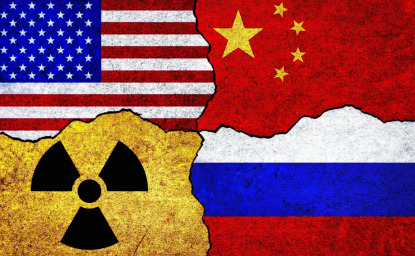The People’s Republic of China’s (PRC) Belt and Road Initiative (BRI) celebrated its 10th anniversary September 6, 2023. It has had a global impact, with 147 countries signed on to BRI projects by this February and having invested more than a trillion dollars in infrastructure and investment projects. In just a few weeks, PRC President Xi Jinping will convene the third Belt and Road Forum with BRI member states, highlighting the continued importance of his global infrastructure investment project to the PRC’s foreign policy. A decade after the BRI’s inception, consequential impacts of the initiative on cities and local communities have started to emerge. One notable example is the City of Duisburg in northwestern Germany.
With Duisburg’s proximity to both the Rhine and the Ruhr rivers, it became a popular European trade hub and for the heavy metal industry, with ThyssenKrupp finding its beginnings there. Beyond steel and coal production, Duisburg is also home to the largest inland port in the world, with 20,000 ships and 25,000 trains being processed annually at the local port. Despite these favorable advantages, Duisburg still recorded the second-highest unemployment in Germany, with an unemployment rate of 12.2% in 2020.
Duisburg also possesses a unique feature many are unaware of: over the past decade, it has established itself as Germany’s China city and the heart of the BRI in Europe. The city of 500,000 people caught the attention of the Chinese government, so much so that Xi paid Duisburg a visit in 2014. Over much of the next decade, cooperation between Duisburg and China grew, leading to installing the city’s China representative – the first in Germany – in 2015 and the opening of a dedicated municipal department for China affairs in 2021.
In 2018, 80% of China’s trains to Europe made Duisburg their first stop, and 30% of total trade between Europe and China first arrived in the German port before disembarking for its final destination. Meanwhile, Huawei and the City of Duisburg signed a memorandum of understanding to develop Duisburg into a smart city. At the height of the partnership, up to 50 trains per each week made their way from Chinese cities to Duisburg. By 2019, more than 100 Chinese companies have set up offices there. That same year, the Chinese Ocean Shipping Company (COSCO) acquired a 30% stake in Duisburg’s new Gateway Terminal, envisioning that it would become the largest inland container terminal in Europe. With the increase of trade and partly Chinese business, more than 7,000 jobs have been created in Duisburg within the past two decades.
Now, 10 years after the inception of the BRI, the effects of Chinese investment into Duisburg have slowly deteriorated. In late 2022, Huawei and Duisburg ended their technological cooperation and their desire to make Duisburg a smart city based on Huawei technology. The reason cited was Beijing’s ties with Russia. Additionally, while COSCO’s quest for stakes in the port of Hamburg made headlines, the company quietly divested its stakes into the Duisburg inner port terminal. As German public opinion about China shifts to less favorable, some argue that the sooner-than-expected parting in the relationship of the City of Duisburg and Chinese trade will prove beneficial for the German economy and politics in the long term. But when local communities and jobs begin to rely on Chinese trade, as in the case of Duisburg, Chinese investments also have the potential to significantly disrupt local economies. Fortunately for Duisburg, Singapore’s PSA in July 2023 agreed to purchase a 22% minority stake in Duisburg’s Gateway Terminal.
With Duisburg having once been the center of Chinese investment in Europe, and with Chinese interest now fading, the question arises of what lies ahead for Chinese investments abroad. And, once Chinese trade scales back, what will happen to the companies and families that have settled in local communities and have stimulated local economies? Concerns about debt-trap diplomacy have long accompanied discussions around the BRI, but it may be time to consider the local economic implications that Chinese divestments will bring in the future. As the PRC realigns its investments and interests abroad, the case of Duisburg serves as an important example and reminder for other cities to consider the long-term sustainability of foreign investments.
Author


Wahba Institute for Strategic Competition
The Wahba Institute for Strategic Competition works to shape conversations and inspire meaningful action to strengthen technology, trade, infrastructure, and energy as part of American economic and global leadership that benefits the nation and the world. Read more





